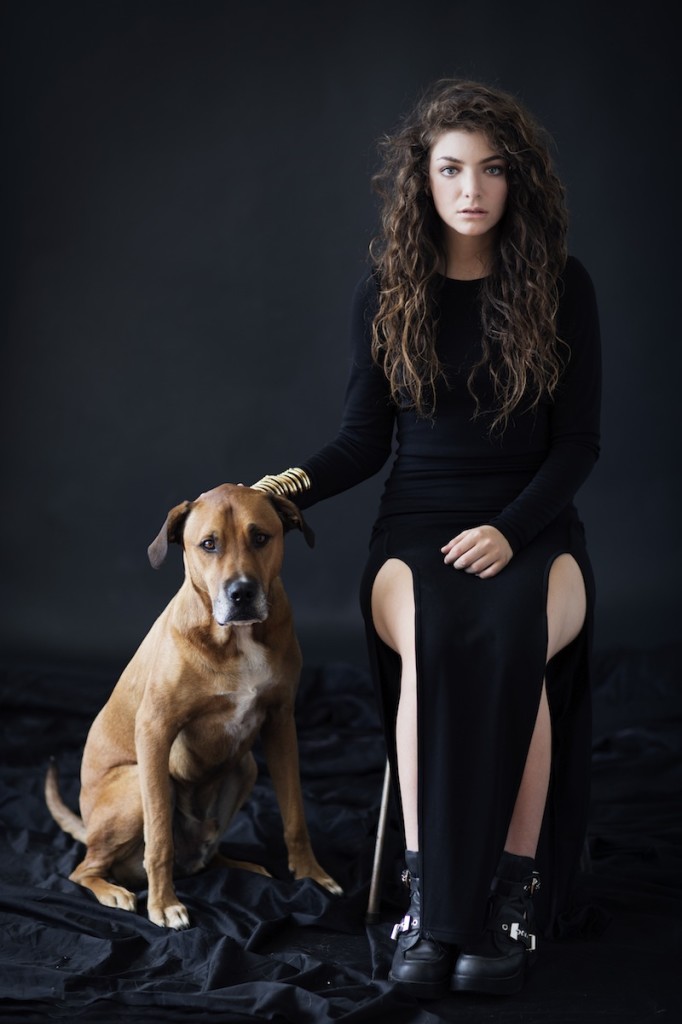Oh my Lorde: Music Industry Embraces a “Pure Heroine”
Courtesy of Interview Magazine.
Lorde is as pure a heroine as can be.
Seventeen-year-old breakout New Zealand star, Lorde, has graced the music scene with her haunting, mysterious lyrics that satirize mainstream culture with a candid honesty that most agree with, yet fear to admit. Born Ella Marija Lani Yelich-O’Connor, the New Zealand singer-songwriter rose to fame with “Royals,” an art pop, grime, and blues song that criticizes the opulence and luxurious lifestyles espoused by the pop industry: “But every song’s like gold teeth, grey goose, trippin’ in the bathroom/Blood stains, ball gowns, trashin’ the hotel room…”
The hit single debuted at number one on the New Zealand Top 40 and reached number one on the Billboard Hot 100 in 2013, making Lorde the first New Zealand solo artist to have a number one song in the United States. Since the release of “Royals” in the United States– when 85,000 copies of the song were sold during a single week of July 2013– Lorde has ascended on the entertainment hierarchy. In October 2013, she won the 2013 Silver Scroll award for “outstanding songwriting achievements in original New Zealand pop music” with “Royals”. On Sunday, January 26th, at the 56th Annual Grammy Awards, Lorde was nominated for: Record of the Year (the youngest person to ever be nominated), Best Pop Solo Performance, Song of the Year for “Royals” and Best Pop Vocal Album for Pure Heroine. The third youngest winner in Grammy history and the youngest winner from New Zealand, Lorde took home both Song of the Year and Best Pop Solo Performance.
But, don’t be fooled. Lorde is no one-hit-wonder.
Pure Heroine demonstrates Lorde’s ability to synthesize the dual themes of decadence and adolescence, ensuring her songs collectively tell a cohesive story. The album begins with the frank observation, “Don’t you think that it’s boring how people talk,” in “Tennis Courts.” Cited by singer Elton John as “one of the most touching, beautiful things on earth,” the song compares vacuous high-school gossip to the rhythmic back-and-forth motion of a tennis ball on a court. The playlist then takes listeners down an alleyway of dark torment regarding social anxiety and romantic desires.
“Team” utilizes indietronica and synthpop elements to illustrate the jaded feelings of a member of the popular crew: “I’m kind of over getting told to throw my hands up in the air/So there.” Lorde continues to explore the cynicism and fear that arise from growing popularity in “Still Sane.” Capturing the young musician’s growing ambitions–“I’m little but I’m coming for the crown”–the track also highlights Lorde’s recognition of the moral tainting that typically accompanies a prolific status: “Only bad people live to see their likeness set in stone/What does that make me?” In “White Teeth Teens,” the song-writer further exhibits her lyrical prowess, establishing white teeth as a symbol of many teens’ roles as whited sepulchres shrouding shallow conformity.
Fans are reminded of the initial sociological examination of youthful conversation in “Tennis Courts” by the end of Pure Heroine. The final track, “A World Alone,” takes place not on the green concrete, but indoors at a party filled with loquacious hypocrites who “make a mess, then go home, and get clean.” After describing the hollow echoes of senseless chatter, Lorde ends with the lyric, “Let ’em talk,” allowing the album to complete the cyclical nature of the opening line.
Prasied by Rolling Stone as “languidly aphoristic,” Lorde’s lyrics “balance rock-star swagger and torqued-up teenage angst,” effectively underscoring the musician’s quest to emerge as a pure heroine in an industry that condones twerking and the capitulation of ethics. Coupled with her prominent stage presence, shameless interpretive dancing, and theatrically laced, black outfits, such deliberately multi-faceted songs ensure Lorde will join pop royalty, Queen Bey, as one of the “the most important and compelling popular musicians of the twenty-first century” (The New Yorker).
“You can call me Queen Bee,” Lorde advises in “Royals.”
Oh, we most gladly will.
Continue writing, Queen; your loyal followers await whatever eletro-rock, ambient critiques you have up those glorious gothic sleeves.


